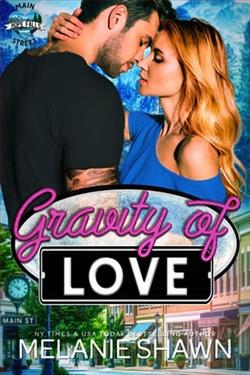Page 76 of The CEO
“She matters that much?” Foster asks quietly, not looking at me as he carefully administers the orchid’s salvation.
“She shouldn’t.” My voice is barely audible, the admission torn from somewhere deep and unpracticed. “Nothing should matter that much.”
“And yet.”
“And yet,” I echo, the two words containing a universe of unwanted revelation.
Foster finishes his work, stepping back to assess the orchid. “It might survive with proper attention over the next forty-eight hours. I’ll assign someone to monitor it if you’re . . . otherwise occupied.”
“No,” I say finally. “I’ll tend to it myself. I need the discipline.”
Foster nods and turns to leave, but pauses at the door. “Sir, if I may . . . in my experience, the things we fight hardest to control are often the things most worth surrendering to.”
The observation hangs in the humid air between us, uncomfortably perceptive. I don’t respond, unwilling to acknowledge the truth in his words. After he leaves, I stand motionless beside the struggling orchid, confronting something I’ve refused to name until now.
Eve Thorne has become essential to me. Not as an asset. Not as a strategic advantage. Not even as an object of obsession. But as something more fundamental—oxygen, heartbeat, purpose beyond the calculations of power and control.
The realization settles over me like a physical weight, pressing against my carefully constructed walls until hairline fractures appear. For the first time since I watched my mother’s life drain away on our kitchen floor, I feel genuinely afraid—not of external threat, but of this internal unraveling.
If Eve doesn’t return, something vital within me will die, just like this orchid will wither without proper care. The parallel is both obvious and terrifying.
I reach out, gently touching one delicate petal, my voice so soft it barely disturbs the humid air.
“Come back to me.”
* * *
Three days have passed with no sign of Eve. No response to my messages. No appearance at her apartment. No return to her job at theTribune.It’s as if she’s vanished, slipped through my carefully woven surveillance net.
My control—over The Shadows, over myself—is fraying rapidly.
“Sir, The Heiress is questioning your commitment,” Foster reports, standing rigidly before my desk. “The Singapore expansion is at a critical juncture, and you’ve missed three strategic meetings.”
“The Heiress can manage Singapore without my input,” I say dismissively, not looking up from the surveillance reports on Eve’s last-known movements. “She’s more than competent.”
“It’s not about competence, sir. It’s about your absence from critical operations.” Foster hesitates before adding, “The council remains . . . concerned.”
“As I’ve told you many times before, the council exists at my discretion,” I say, finally looking up. “Not the other way around.”
“With respect, sir, you built The Shadows into what it is as a collective. Equal voices with you as the final authority. That structure is being tested by your . . . distraction.”
I rise slowly from my chair, my patience wearing dangerously thin. “Choose your next words very carefully, Foster.”
To his credit, he doesn’t back down. “You’ve been obsessed with Eve Thorne for years. But this . . . this is different. You’re compromising everything we’ve built. For what? A woman who now knows enough to destroy us all?”
“She won’t.” My certainty doesn’t waver.
“How can you know that? She has every reason to want revenge against you—against all of us by association.”
“Because I know her,” I snap, my voice rising. “Better than any of you.”
Foster studies me, concern evident in his usually stoic expression. “Your judgment is compromised where she’s concerned. We all see it.”
The implication hangs heavy between us. I move around the desk, coming to stand directly before him. “And what exactly are ‘we all’ proposing?”
He meets my gaze evenly. “The Vigilante suggested a containment protocol.”
The words land like a physical blow. Containment protocol: our euphemism for the elimination of a threat.















